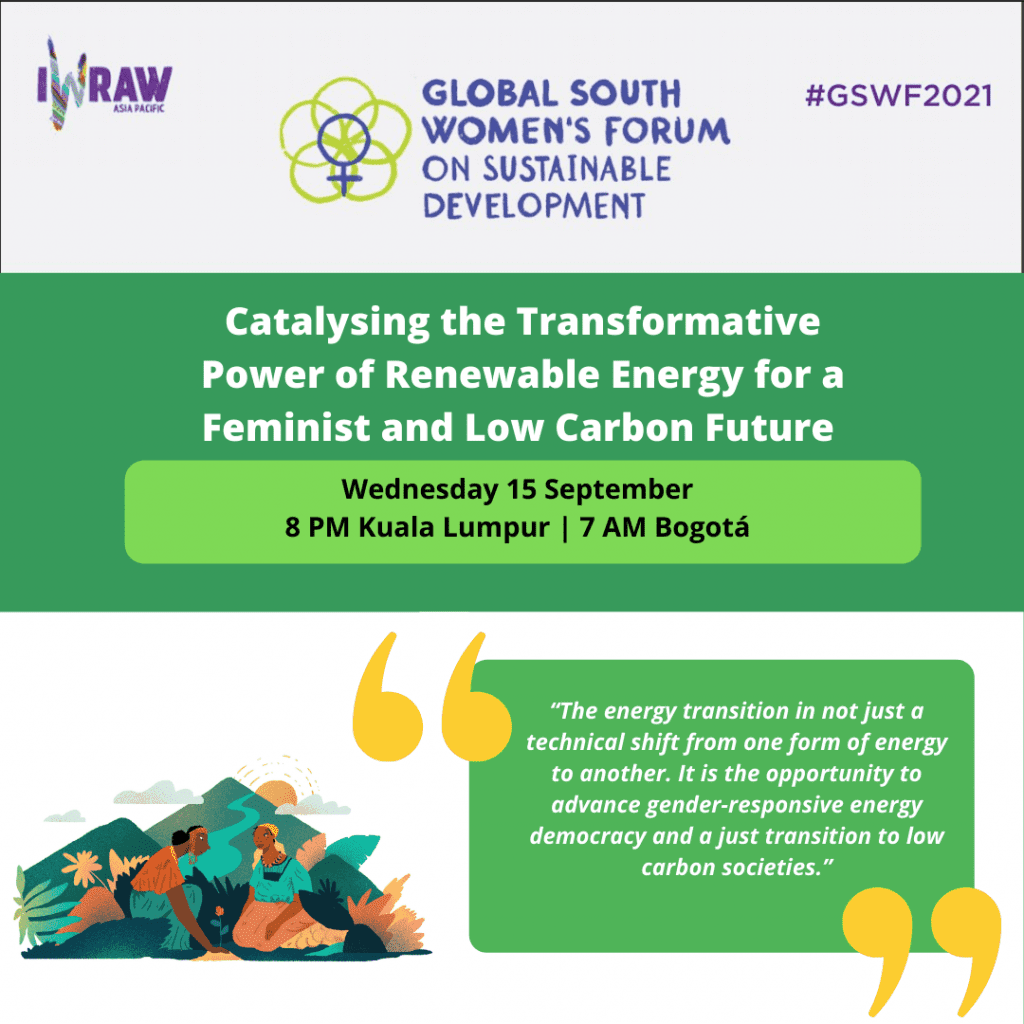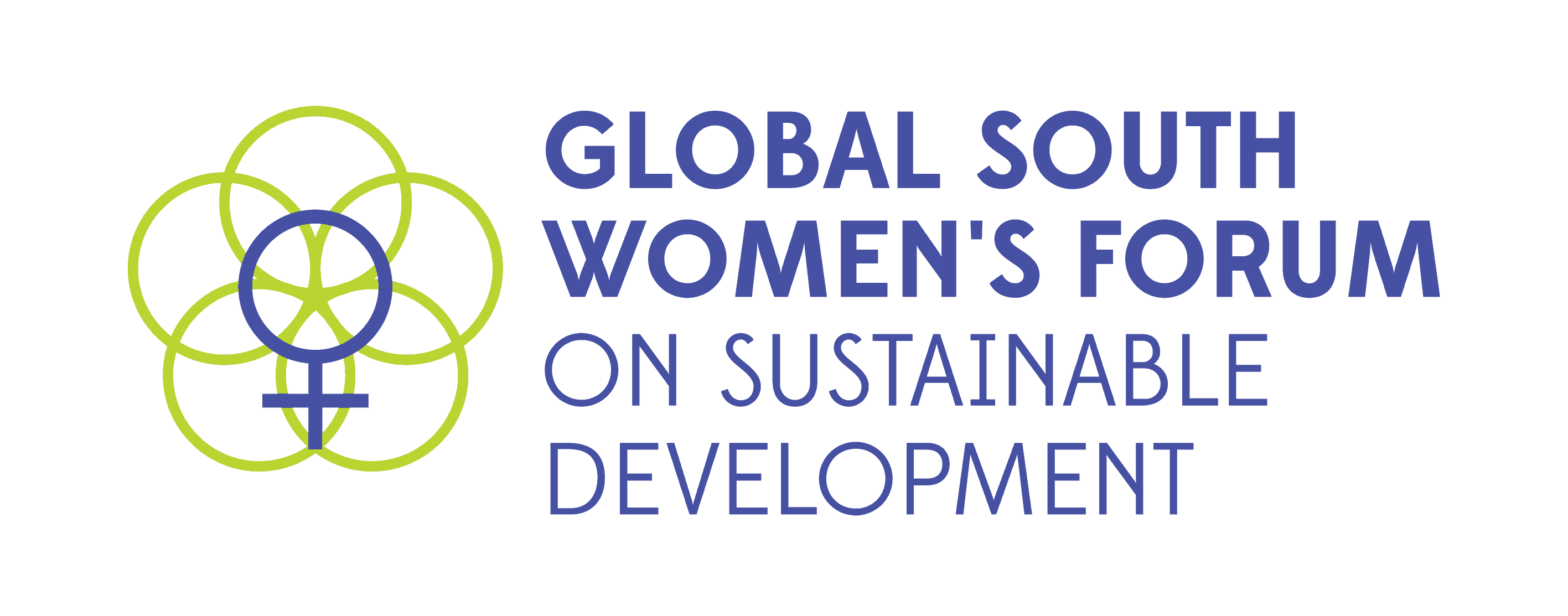Catalysing the Transformative Power of Renewable Energy for a Feminist and Low-Carbon Future
15 September 2021 @ 8:00 pm – 10:00 pm UTC+8
Panel
Organised by Interamerican Association for Environmental Defense (AIDA) and Global Initiative for Economic, Social and Cultural Rights (GI-ESCR)
Moderator:
Maite Smet, Global Alliance for Green and Gender Action (GAGGA)
Speakers:
Alejandra Lozano, GI-ESCR, Switzerland
Indira Shrees Magar, Indigenous Women Legal Awareness Group (INWOLAG), Nepal
Gisele Elis Martins, Mulheres Unidas Pelo Clima (MUC Brasil), Brazil
Bartola Pérez, Asociación de Mujeres Rurales, El Salvador
Liliana Avila, AIDA, Colombia
Ndvile Mokoena, Gender CC, South Africa
Paulina Montes de Oca, ProDESC, Mexico
Description: It is widely accepted that the climate crisis demands a swift transition from fossil fuels to renewable sources of energy. This restructuring of the global energy system is well underway, ushering in a new, cleaner model of powering societies across the globe. Yet such a comprehensive redesign of the dominant model of energy provision also presents a wealth of opportunities that extend beyond the imperative of reducing greenhouse gas emissions.
What are the main challenges that the dominant energy model presents that limit women’s participation in the energy transition? How can we leverage this opportunity to reshape energy systems so that they better account for women’s needs, interests, and rights? How can we link climate and energy action to expand community engagement and strengthen participation and democratic governance to advance a more equitable, sustainable and gender-just energy system? How can we reclaim the energy sector to better distribute benefits and ensure greater public control?
This event convened grassroots organisations, women’s rights and climate change activists to share a common vision of a gender-just renewable energy future. The participants shared the stories of women’s human rights defenders resisting large-scale renewable energy transnational enterprises that are adversely impacting their livelihoods, as well as the community-led alternative projects that have been able to provide this essential service with more equitable outcomes and public control prioritising women’s needs, justice and decentralised governance.
Watch the session in the video below, or click to view it on Youtube.

